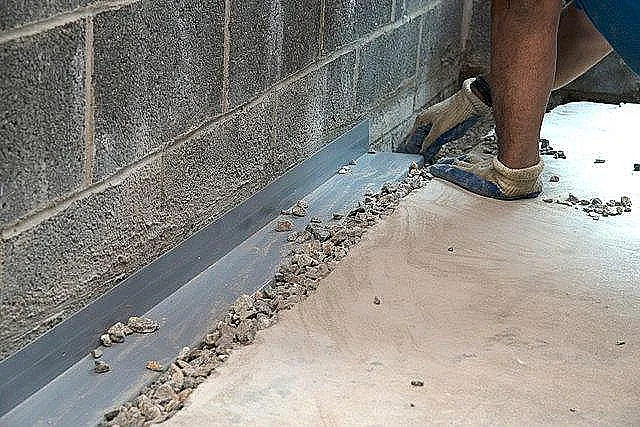By Walsh Crawl Space | Published on November 7, 2024
Perimeter drain systems play a critical role in preventing water intrusion and managing moisture around your home’s foundation. This guide explains what a perimeter drain system is, how it works, and why it’s essential for any property owner concerned about foundation and water-related damage.

Proper installation of a perimeter drain system can help prevent costly water damage to your home.
A perimeter drain system, also known as a French drain or foundation drain, is designed to channel groundwater away from your home’s foundation. By redirecting water away from vulnerable areas, these systems protect basements and crawl spaces from water infiltration, which can lead to structural damage and mold growth. A well-installed perimeter drain system collects water around the perimeter of the building and directs it to a sump pump or a safe drainage location.
Without proper drainage, water can accumulate around the foundation, leading to cracks, leaks, and compromised structural integrity. Perimeter drains help mitigate these risks by keeping water away from the foundation walls. They are particularly crucial for homes built in areas with high water tables or heavy rainfall. In addition to structural benefits, perimeter drain systems can help maintain a dry, healthy environment within crawl spaces and basements, reducing the risk of mold, mildew, and pests.
Perimeter drain systems are typically installed at the base of the foundation. A trench is dug around the foundation walls, where a perforated drain pipe is placed and surrounded by gravel. This setup allows water to seep into the pipe through perforations, directing it away from the foundation. Some systems lead to a sump pump basin, where the water is then pumped away from the home. The gravel acts as a filter, preventing soil from clogging the pipe while allowing water to flow freely.
In the first step, professionals dig a trench around the foundation. The depth of this trench is carefully calculated based on the home’s foundation level and the local water table.
A perforated pipe is then laid in the trench, sloping slightly to ensure water flows in the right direction. The pipe is positioned to collect groundwater efficiently while avoiding areas that could lead to clogging.
After placing the pipe, contractors fill the trench with gravel to support drainage while filtering out soil particles. The gravel layer is essential to maintain clear pathways for water to enter the drainage system.
In many installations, perimeter drain systems are connected to a sump pump, which actively moves water away from the home’s foundation. The sump pump acts as a secondary line of defense against water intrusion.

Walsh Crawl Space: With proper perimeter drain installation and maintenance services, Walsh Crawl Space helps keep your foundation safe from water damage. Contact us for a professional assessment today.
It’s recommended to inspect your perimeter drain system at least once a year, especially before the rainy season, to ensure it's functioning properly and to clear any clogs or blockages.
Yes, a properly installed perimeter drain system is effective in preventing basement flooding by redirecting groundwater away from your home’s foundation.
Most homes benefit from perimeter drains, especially if they have basements or are located in areas prone to heavy rainfall or high water tables. However, installation should be customized based on the property’s specific needs.